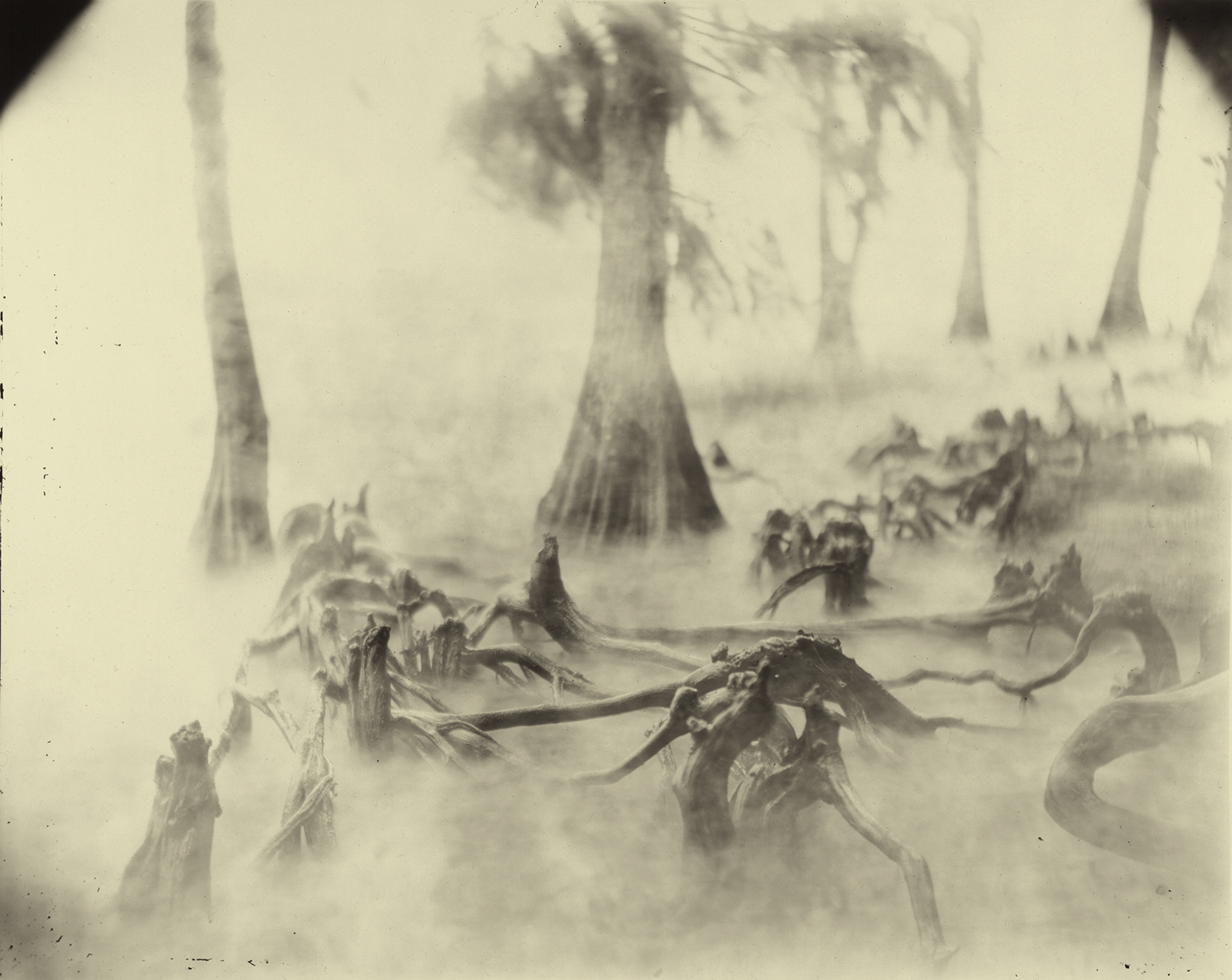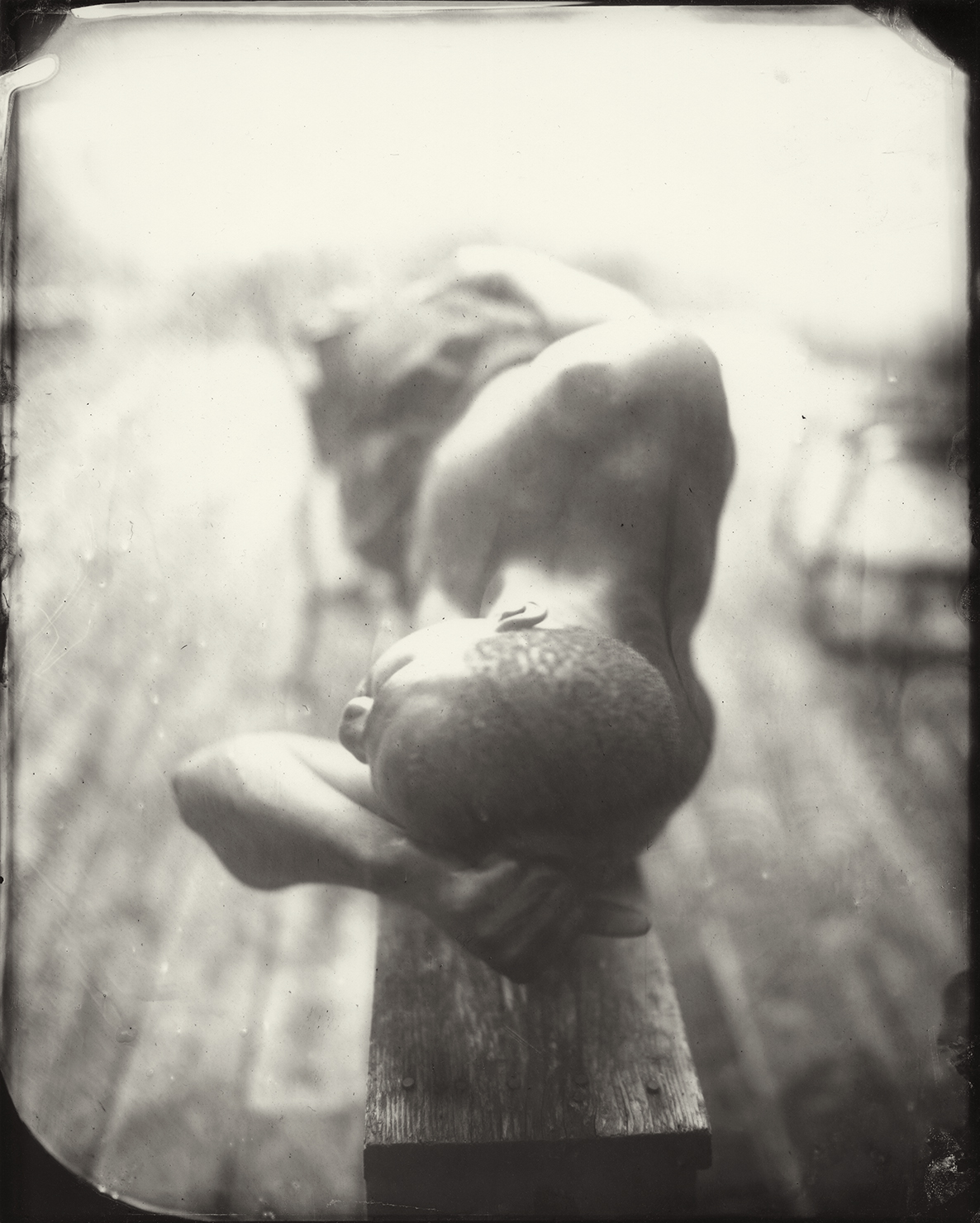Sally Mann's ghosts
Unable to escape the controversies of her past, the photographer attempts to understand and embrace them


A free daily email with the biggest news stories of the day – and the best features from TheWeek.com
You are now subscribed
Your newsletter sign-up was successful
Sally Mann is haunted by the past. And in her new book, Hold Still: A Memoir with Photographs, the 64-year-old artist grapples with what's behind her in an attempt to find understanding and peace.
That's easier said than done. Because a big part of Mann's past, a part that Mann just can't seem to shake, is a scandal. Her 1992 book Immediate Family featured photographs of Mann's three young children, who were sometimes naked or bare-chested, on the family's remote Virginia farm. Critics decried Mann's art as akin to child pornography. And more than two decades later, that's a label that still taints Mann.
"You became famous and controversial for the photos in your book Immediate Family," noted NPR Fresh Air host Terry Gross in a recent interview with Mann. Why, Gross asked, did Mann take nude photos of her children that could potentially be interpreted as child pornography?
The Week
Escape your echo chamber. Get the facts behind the news, plus analysis from multiple perspectives.

Sign up for The Week's Free Newsletters
From our morning news briefing to a weekly Good News Newsletter, get the best of The Week delivered directly to your inbox.
From our morning news briefing to a weekly Good News Newsletter, get the best of The Week delivered directly to your inbox.
"It's not that I wanted to do a series of pictures of my children nude," Mann said. "It's just that they were always nude in the summers when I did most of my shooting."
"So what were your motivations," Gross asked, "[in creating] the most controversial photos in which your children are eroticized?"
"I guess that's the key word," Mann said. "I don't feel that they're eroticized so we can agree to disagree on that I guess."
In Hold Still's nearly 500 pages, Mann dedicates 78 to the aftermath of that 1992 book of photographs, which inspired threatening letters, harsh criticism in the national press, and even an aggressive stalker. The whole episode is clearly one of the most important events in Mann's life, and one that still really stings. Despite it all, she does not seem to have regrets.
A free daily email with the biggest news stories of the day – and the best features from TheWeek.com
But, in the end, as our own marble cake has emerged, swirled with dark confusion and light with angel food transcendence, the answer is Yes. Yes, and yes, resoundingly, absolutely, we would do it all over knowing what we know now. [Hold Still]
Sally Mann is about so much more than this controversy, and we do her art a disservice by focusing too closely and completely on this one thing. In her memoir, Mann boldly and vividly confronts phantoms from the South's legacy of slavery, her own racial blindness, and her family's skeletons. Mann literally digs into her parents' and grandparents' hoarded ephemera ("I was stunned by the level of collection — they saved everything"), where she finds tales of success and adventure, but also the darker realities of Southern slave-owning patriarchs, unhappy marriages, and untimely deaths.
She is particularly haunted by the spirit of her father, who traded his love of the arts for the practicality of a life in medicine.
Am I suggesting here that I was born to redeem my father's lost artistic vision, the child destined to make the art that he was unable to make, to peer behind some of those 2,000 doors? Maybe I am, and maybe I was. God knows I have tried. [Hold Still]
That fatherly phantom is conjured more literally when Mann finds a series of photos her father took around New Orleans in 1939.
I could have taken any of these pictures. In fact, I have taken these pictures, almost every one of them, without the benefit of ever having seen them before. Recognizing them as my own pictures gave me a moment of woo-hoo, hair-raising fission followed by a vexatious pitch of resentment and resignation. I began to see my artistic life… as the inevitable result of my silent father's clamorous influence. [Hold Still]
For her own Southern gothic series taken some 60 years later, which would eventually become Deep South, Mann traveled though Alabama, Mississippi, and Louisiana. The resulting images of Civil War battlegrounds and swampy landscapes are chilling. The beautiful imperfections — blurred backgrounds, burned edges, shape-shifting shadows — have the same effect as feeling as though you're being followed but turning to find no one there.

Mann was raised by a black woman named Gee-Gee who was employed by her family for 50 years. "Down here, you can't throw a dead cat without hitting an older, well-off white person raised by a black woman, and every damn one of them will earnestly insist that a reciprocal and equal form of love was exchanged between them," she writes.
Though Gee-Gee provided the young Mann with a source of unconditional love otherwise absent from her stiff Southern household, the adult artist is haunted by all that was left unsaid and unasked of this formidable woman.
How did a widowed black woman pay for the housing, the food, the travel, and the tuition to educate six children? By working 12 hours a day and by taking in linens to iron at night, linens stuffed into white sacks crowding her front doors when my father took her home after all day on her feet at our house. What did he think when he saw those bags? What were any of us thinking? Why did we never ask the questions? That's the mystery of it — our blindness and our silence. [Hold Still]
Mann turns these nagging questions into an introspective series of portraits of black men. "Here I am doing my best to visually articulate my sense of the unsettled accounts left to us by that brooding curse," she writes.

Mann uses these men as a bridge to the past. Posing them voyeuristically — the camera's lens like a pair of eyes boring into their backs, the shape of their calves, the rise of their chests — she tries to confront the ghosts of those that lived on her periphery.
What I want to do is find out who those black men were that I encountered in my childhood, men that I never really saw, never really knew, except through Gee-Gee's eyes or the perspective of a racist society. It's an odd endeavor, and the remarkable thing is that my models are willing to let me try. [Hold Still]
In the quarter century since the publication of Immediate Family, Mann has created deeply layered work exploring not just the American South, but also nature's mortality and the beautiful fragility of the body. Each series pulses with the influence of her past.
I am past taking pictures for the sake of seeing how things look in a photograph, although sometimes, for fun, I still do that. These days I am more interested in photographing things either to understand what they mean in my life or to illustrate a concept. [Hold Still]
Mann may never be able to shake her scandal. But that is true of so many great artists.
Many brilliant photographers have pushed the boundaries of comfort, whether it was Robert Mapplethorpe's sexually explicit gay imagery, Nan Goldin's chronicles of New York City's underbelly, or the "disturbing strangeness" of Diane Arbus' parade of freaks. These artists have since come to define the genres of portraiture, street photography, and snapshot. Their work humanized the bizarre and unknown, tested freedom of expression, and legitimized an art form that was still pushing through the margins of the critical world. Mann understands this, and has always been willing to confront the uncomfortable. And we're better for it.
Lauren Hansen produces The Week’s podcasts and videos and edits the photo blog, Captured. She also manages the production of the magazine's iPad app. A graduate of Kenyon College and Northwestern University, she previously worked at the BBC and Frontline. She knows a thing or two about pretty pictures and cute puppies, both of which she tweets about @mylaurenhansen.
-
 The Olympic timekeepers keeping the Games on track
The Olympic timekeepers keeping the Games on trackUnder the Radar Swiss watchmaking giant Omega has been at the finish line of every Olympic Games for nearly 100 years
-
 Will increasing tensions with Iran boil over into war?
Will increasing tensions with Iran boil over into war?Today’s Big Question President Donald Trump has recently been threatening the country
-
 Corruption: The spy sheikh and the president
Corruption: The spy sheikh and the presidentFeature Trump is at the center of another scandal
